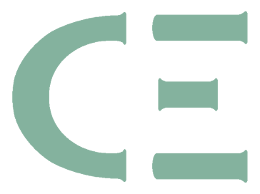Information Technology
Information Technology
Information technology is considered as an essential enabling technology for many technical advances in our everyday life. For example, for the internet, mobile communications, or autonomous systems (e.g. robots and drones), information technology provides the platform for acquiring, processing, transmitting, and reproducing information as a basis for human-to-human, human-to-machine, and machine-to-machine communication. This program aims at providing the knowledge and skills for contributing to the further development of the technology.
Which subjects will be taught?
- Digital signal processing: With signals being the carrier of information, the fundamentals of digital signal processing as taught in undergraduate courses are extended to advanced topics including digital filter design, transforms, filter banks, finite wordlength effects, stochastic signal processing, and adaptive systems.
- Applications of digital signal processing to text, speech, audio, images, and video. This includes source coding techniques for all above mentioned types of signals, plus, for example, speech enhancement, sound synthesis and medical image processing.
- Information theory determines e.g. how many bits are necessary to represent a given message and how it must be protected when transmitted over a noisy channel. Thereby, it provides the theoretical background for source coding, channel coding, and transmission of signals.
- Communications: The basic model consisting of information source, transmitter, channel, receiver, and information sink applies to all problems in communications. The design of respective schemes and components is discussed for modern communication systems including the Internet of Things (IoT) and mobile networks of 5th and 6th generation (5G/6G). Advanced courses also address e.g. network architectures, protocols, channel coding, equalization, and machine learning for communications.
- Practical courses in digital signal processing and communications: The students will deepen their theoretical knowledge in guided experiments and projects using powerful simulation tools (e.g. Python and Matlab) and real-time hardware.
The main goals of this TAF are a thorough understanding of the methodology used for creating new technology and the acquisition of a well-substantiated knowledge of the state of the art.
What prior knowledge will be expected?
As prerequisites expected from undergraduate studies, a working knowledge in mathematics for engineers (including linear algebra, functions of complex variables, probability theory) and familiarity with the fundamental theoretical concepts for describing signals and systems is expected (see, e.g., A.V. Oppenheim and A.S. Willsky, Signals and Systems, Prentice Hall, 1983; S. Haykin, B. van Veen, Signals and Systems, Wiley, 1999). Moreover, basics in communications (see e.g., Haykin, Communication Systems, Wiley, 4th edition, 2000) and digital signal processing (see e.g., Oppenheim/Schafer/Buck, Discrete-time Signal Processing, Prentice-Hall, 2nd edition, 1998) are expected.
The prospective students should be experienced in programming in Matlab, Python or C/C++ and should be able to use the computer as a tool for solving numerical problems (e.g., using Matlab).
TAF Adviser
Prof. Dr. Wolfgang Gerstacker, Akad. Dir.
Department of Electrical-Electronic-Communication Engineering
Institute for Digital Communications (IDC) (Prof. Dr. Schober)
- Phone number: +49 9131 85-27694
- Email: wolfgang.gerstacker@fau.de
